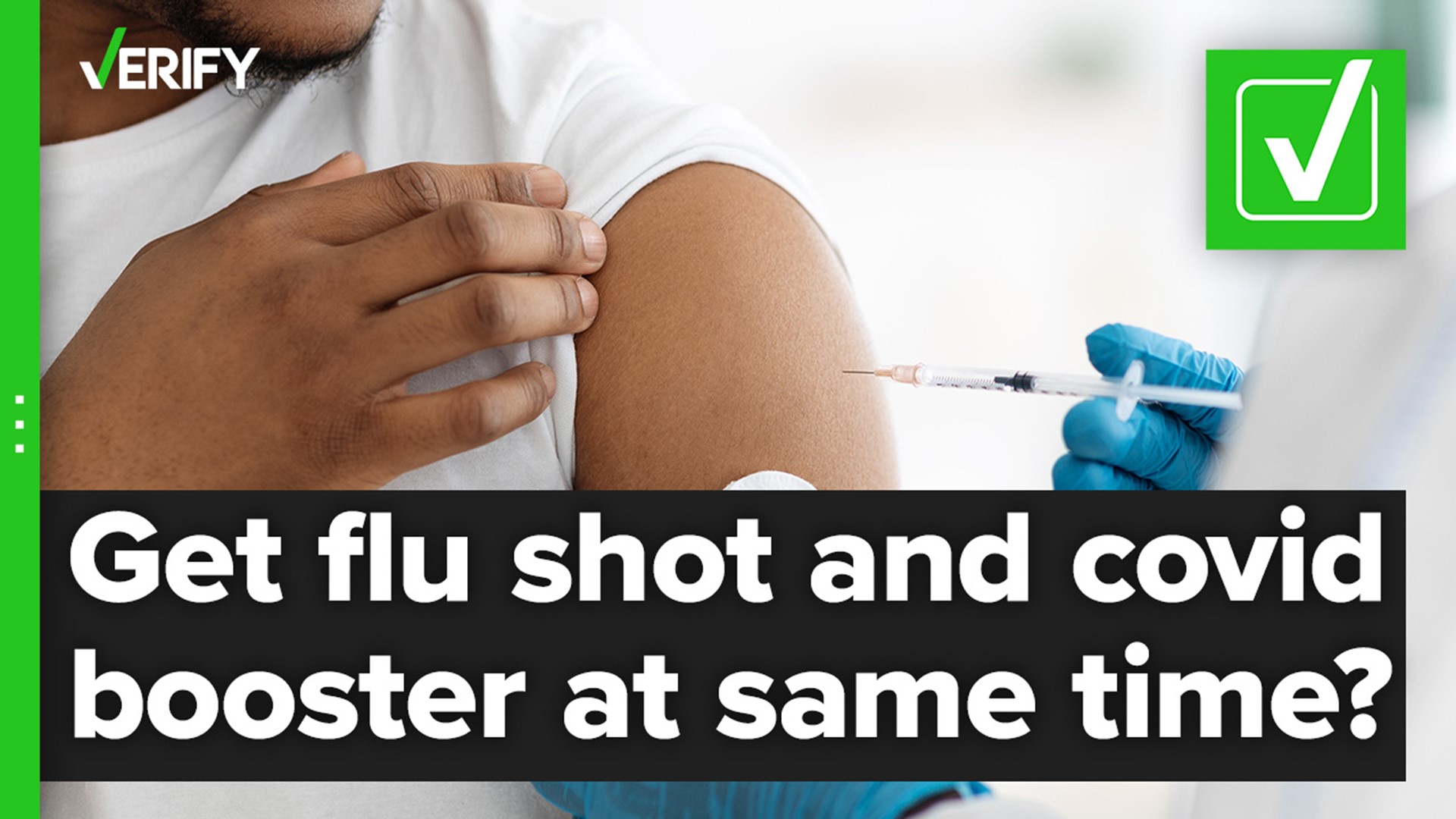MINNEAPOLIS — While the COVID-19 pandemic has receded into the background of some peoples' minds, the coronavirus continues to claim the lives of hundreds of Americans each day.
With the latest COVID-19 vaccine booster, people can lower their chances of getting seriously ill from the coronavirus and their chances of dying from it, according to the Center for Disease Control and Prevention.
The new booster is called "bivalent" because it protects against the original strain of COVID-19 and the newer Omicron variant.
According to the Minnesota Department of Health, only 67.5% of Minnesotans have completed their vaccine series. Since the bivalent booster became available on Sept. 7, 4.3% of eligible Minnesotans, or 239,059 people, are up-to-date with their vaccine doses.
What you need to know
Dr. Bill Morice, the president of Mayo Clinic Labs, told KARE 11 that the Federal Drug Administration "fast-tracked" the bivalent boosters because of how quickly COVID-19 can adapt and evolve.
According to the CDC, a delay in waiting for human trial data could make the booster outdated by the time a fall surge approaches.
At the time, Dr. Morice added that since the boosters are new, there just hasn't been enough time to study how much more effective they will be than previous vaccines.
"We don't have the clinical data like we have with the prior boosters, to know how much more effective they will be," he said. "We do know they elicit a strong antibody response, and we know that they're going to be safe, because they are so similar to what's already proven to be safe, clinically. We don't know how much more effective because we just don't have that data yet."
Hennepin Healthcare internist and pediatrician Dr. Hannah Lichtsinn also told KARE 11 that the bivalent booster would be one people would receive if they haven't previously received a booster.
"Right now it's the best we can predict, we don't know what's going to come next, but we do know Omicron is the primary form of COVID that is circulating right now," she explained.
Dr. Morice said that he thinks of the bivalent boosters as the next step in approaching COVID-19 vaccines, likening it to the flu vaccine that is designed with what strain is currently circulating most.
The White House has also thought of the latest boosters like the seasonal flu vaccine.
"We’ve been thinking and talking about this as an annual vaccine like the flu vaccine," White House COVID-19 coordinator Dr. Ashish Jha said. "Flu vaccine season picks up in late September and early October. We’re just getting our education campaign going. So we expect to see, despite the fact that this was a strong start, we actually expect this to ramp up stronger.”
What it does
Each booster features spike proteins that are meant to help the body's immune system against the original strain of COVID-19 and the Omicron variant B.A4 and B.A5.
Lichtsinn previously told KARE 11 that this booster is the best bet against the ongoing pandemic based on what medical experts know about the circulation of Omicron.
"I think that this vaccine will offer additional protection, especially as we enter into fall and winter, which tends to be where we see more spread of respiratory viruses," she added.
With extended protection from the worst of COVID-19, the bivalent boosters can offer a sense of relief heading into the holiday season.
"The things to be most cautious about COVID are the severe illness from getting sick right away, but also some of those long-term consequences," Lichtsinn said. "And I do see a lot of people who are continuing to struggle with long COVID symptoms from infections from two years ago now, and so anything we can do to protect ourselves is worthwhile."
Who should get it
The Pfizer booster is available for everyone 12 or older and Moderna's is available for everyone 18 or older, according to the CDC.
Dr. Lichtsinn explained to KARE 11 that a lot of people are eligible for the new bivalent booster and that she immediately recommended it to her own family.
"Also anybody who is eligible for a booster anyways and hasn't had one is eligible for this," she told Breaking The News in September. "Also if you're up to date on boosters and it's been at least two months since your last one, also eligible. That goes for anybody 12 years old or older."
Dr. Morice told Breaking The News in late August that just because someone was recently infected with COVID-19 doesn't mean they shouldn't get a booster shot.
"We know from looking at the plasma of patients that have been infected with the more recent circulating strains like Omicron and BA.4 or BA.5, that they do have higher levels of antibodies to those," he explained. "We also know that this virus does not cause really long-lasting immunity, so just because you've been infected... if it's been in the past weeks, sure, but if it's been a few months ago, I wouldn't say, 'Well, I should be fine now.' That's just not the way COVID has behaved."
Where to get it
The Minnesota Department of Health currently has several state-run sites that provide the bivalent booster and are available for appointment and there are hundreds of vaccine providers across the state.
For information about scheduling an appointment at vaccine sites in Moorhead or Rochester, click or tap here. For information about appointments at the Mall of America or in Duluth, click or tap here.
For the complete list of the more than 900 vaccine providers and community sites, click or tap here.
Watch more on the coronavirus:
Watch the latest reports and updates on the coronavirus pandemic in Minnesota with our YouTube playlist:

